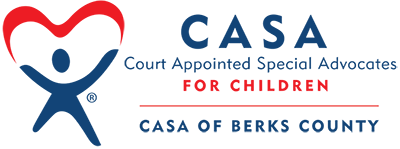1. What are the qualifications to become a volunteer therapist with Youth In Transition?
We welcome compassionate, licensed mental health professionals who want to make a positive impact in the lives of young people. To join us as a volunteer therapist, you must:
- Hold an active, unrestricted clinical license in Pennsylvania (LCSW, LPC, LMFT, LMHC, licensed psychologist, etc.)
- Carry your own individual professional malpractice liability insurance
Note: At this time, we’re not able to accept pre-licensed associates (e.g., AMFT, ASW, APCC), but we hope to expand opportunities in the future!
2. Will Youth In Transition provide a teletherapy platform?
Since we partner with therapists in private practice, we ask that you provide your own HIPAA-compliant telehealth platform. We do not cover technology, insurance, or licensing fees.
3. Does Youth In Transition provide liability or malpractice insurance?
We ask that all therapists carry their own malpractice/professional liability insurance to cover your services provided through our program. This ensures you’re fully protected while offering care.
4. Who will I be working with?
You’ll be supporting youth between the ages of 16–24 who have lived experience in the foster care system. These are young people with incredible resilience, who are seeking meaningful therapeutic support to navigate life’s next chapter.
To participate, clients must:
- Be able to complete a clinical intake
- Have treatment goals appropriate for weekly outpatient therapy
5. How are clients matched with therapists? Can I choose who I work with?
Absolutely. We take into account your clinical strengths, availability, and preferences—like age range or therapeutic modalities. You’ll always have the option to accept or decline a match. It’s important to us that this is a good fit for both you and the client
6. What is the time commitment?
You are asked to commit to one hour per week for each client you accept. Just like in your regular caseload, you’ll continue working with your pro bono client until you both agree therapy has come to a natural close.
7. Will I need to collaborate with caseworkers or others involved in the youth’s life?
Yes, occasionally. Communication with caseworkers, guardians ad litem, or others involved in the youth’s care may be necessary. We’re here to help facilitate those connections and provide guidance as needed.
8. Who is responsible during a crisis or mandated reporting situation?
As the treating clinician, you retain full clinical responsibility—including any mandated reporting or ethical obligations required by your license. We trust your expertise and are always here to support you through tough moments.
9. What if something changes in my life and I can’t continue?
We understand that life happens. If you need to pause or step away from volunteering, just let us know. We’ll work with you to ensure a thoughtful transition for your client, with continuity of care as our top priority.
10. Do you offer continuing education or professional development?
We don’t currently offer CEUs, but we do provide opportunities to connect with a like-minded community of clinicians, share resources, and highlight your work through special features and community spotlights.
11. Are there any benefits to volunteering?
Absolutely. While this is an unpaid opportunity, the impact is profound. You’ll help shape a young person’s healing journey and be part of a community committed to equity and care. Plus, your work may be featured in our newsletters or spotlights to recognize your generosity and heart.

